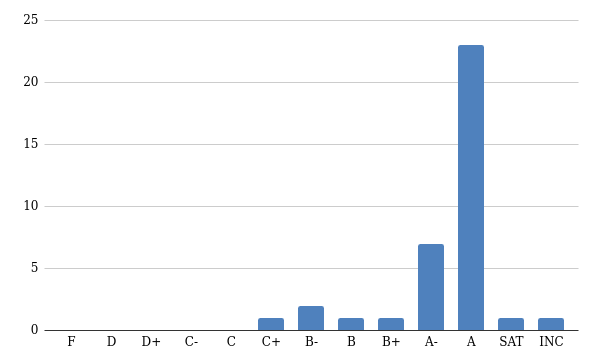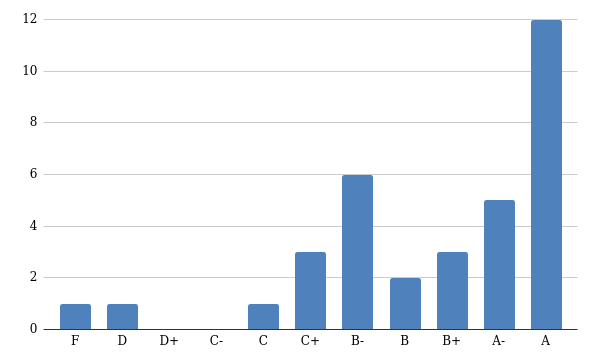COMPSCI 590Q/648: Quantum Information Systems
Quantum information science (QIS) revolutionizes our understanding of the fundamental laws of the universe and promises world-altering improvements in a number of practical computational tasks. For theoretical computer scientists, QIS provides the means to unlock the ultimate computational powers available to us in this universe. For programmers and computer engineers, QIS offers the tools to run simulations and optimizations otherwise infeasible on classical computers. For theoretical physicists, QIS gives us hope of resolving paradoxes foundational to our understanding of Nature. And for experimentalists and engineers, QIS also enables the creation of exquisite sensors and novel communication tools, far outperforming what is classically permitted.
This class will introduce the notion of quantum probability amplitudes, i.e., the "correct" probabilistic description of Nature, and describe how these quantum phenomena permit the creation of new types of computational machines. The introduction to foundational quantum information science will be followed by a few practical (and impractical) quantum algorithms, illustrating the counterintuitive computational powers of quantum mechanics. The latter half of the class will focus on the difficulties of creating such extremely fragile computational machines in our noisy and unforgiving real world.
The 500 and 600 level of this course will share lectures, homeworks, and exams.
The 600 level of this course will also incorporate a for-credit final project assignment either in (1) classical numerical simulations of quantum devices or (2) utilizing cloud APIs for control of experimental quantum hardware (far too immature to run complete algorithms, but sufficient for small tech demos).
| Fall | 2025 | Instructor | Prof. Stefan Krastanov | |
| Location | LGRC A104A | skrastanov@umass.edu | ||
| Days | MonWed | LGRC A211F | ||
| Time | 14:30-15:45 | Prof. Office Hours: before lectures and on demand | ||
| TA | Evan Ciccarelli | |||
| eciccarelli@umass.edu | ||||
| Office Hours: see canvas | ||||
| TA | Mohammad Mobayenjarihani | |||
| mobayen@cs.umass.edu | ||||
| Office Hours: see canvas |
Website at lab.krastanov.org/grad-qis.
Previous versions of the class: 2023, 2024
Online course management through Canvas.
Prerequisites
Strong background in probability theory and linear algebra.
No physics background necessary.
Learning Objectives
Understanding of classification of deterministic, probabilistic, and quantum algorithms, in particular the difference between classical probability and quantum probability amplitude;
Familiarity with the "killer apps" for quantum computing and networking hardware, where they have capabilities beyond those of classical computers;
Understanding of the limitations of quantum computers: in what situations are they not more powerful than classical computers;
Modeling of noisy quantum hardware and standard error correction techniques permitting the creation of reliable quantum hardware out of noisy unreliable quantum systems.
Content
| Class | Topic | Concepts |
|---|---|---|
| 1 | Classical Probability Theory | Bayesian vs Frequentist, parametrization of ignorance, stochastic matrices, probability in physics, probability in computation |
| 2 | Quantum Probability Amplitudes | Classical vs quantum correlation, Unitary matrices, Particles or waves, Observer effect, Delayed choice experiment, Bomb defusing |
| 3 | Measurement | Projectors, partial measurements, non-commuting measurements, subsystems |
| 4,5 | Entanglement | Classical vs quantum correlation, Bell's game and Bell's inequality |
| 6 | Quantum Key Distribution | Indistinguishability of eavesdropper and noise |
| 7 | Teleportation | State teleportation, gate teleportation, superdense coding |
| 8-12 | Quantum Algorithms | Algorithms of Deutsch–Jozsa, Bernstein–Vazirani, Simon, Shor, Fourier Transform, Grover's search |
| 13,14 | Classical Uncertainty in QIS | Density matrices, Partial trace, Purity, CPTP maps, Krauss operators, Quantum Trajectories |
| 15 | Noisy Entanglement | Error detection, Entanglement purification and distillation |
| 16,17,18 | Noisy Quantum Memories | Error correction, Linear Binary Codes, Stabilizer Codes, Syndrome measurement, Syndrome decoding, Repetition code, CSS code, Toric code, LDPC code |
| 20,21,22 | Noisy Quantum Computation | Fault tolerance, Fault tolerant syndrome measurement, Transversal gates, Magic states |
| 23,24 | Efficient Classical Simulations | Stabilizer states, Clifford circuits |
| 25,26 | Continuous Variable Systems | Harmonic oscillators, Wigner diagrams, optics, Gaussian states |
Textbooks
A variety of materials will be provided as the class progresses and each lecture will have suggested readings from multiple sources. You can see a preview of the most important sources.
The majority of the class will be based on Scott Aaronson's lecture notes and the Nielsen & Chuang textbook.
Onboarding Exercises
There are optional ungraded exercises you can use to gauge your preparedness in terms of prerequisites and basic algebraic techniques taught in the first few weeks of class. Office hours would be a good place to discuss them.
The Nielsen and Chuang textbook has a lot of exercises that you should be working through on your own time to prepare, in addition to the homeworks.
Calendar
26 class days
Exams:
Midterm, take home exam, 7am-11:59pm, Tuesday October TBD
Final, in-person written exam, date TBD
Take home exams are completely open book and open internet, but no communication with other sentient beings is permitted (e.g., yes to using search engines, no to asking new questions on forums, no to working with classmates).
The final exam is open book, but you can bring only non-electronic resources (e.g., books and notes, but for best results rely on your own notes) or a non-networked electronic device on which to read your notes or electronic textbooks.
Homeworks:
Seven homeworks.
Extra credit or ungraded homeworks might be considered.
Collaboration is encouraged for the homeworks (and should be disclosed), but the final solutions have to be your own and copying of others' work is forbidden.
| Week | Content |
|---|---|
| Sep 1 | 1 lecture on Wed |
| Sep 8 | 2 lectures |
| Sep 15 | 2 lectures |
| Sep 22 | 2 lectures |
| Sep 29 | 2 lectures |
| Oct 6 | 2 lectures |
| Oct 13 | 1 lecture on Wed |
| Oct 20 | 2 lectures |
| Oct 27 | 2 lectures |
| Nov 3 | 2 lectures |
| Nov 10 | 2 lectures |
| Nov 17 | 2 lectures |
| Nov 24 | 1 lecture on Mon (Thangksgiving break) |
| Dec 1 | 2 lectures |
| Dec 8 | 1 lecture on Mon |
Topics not covered
These are important topics we will not have the time to cover, but you might want to pursue in the future for fuller understanding of the field. Feel free to also discuss them during office hours.
Analog quantum dynamics: Hamiltonians, Schroedinger's equation
Hardware realizations: Transmons and microwave cavities, trapped ions, color centers, photonics
Bosonic codes
Supremacy experiments, sampling
Quantum chemistry simulations
Adiabatic quantum computation
Cluster state computation, One-way quantum computers
Compilation of quantum circuits
Quantum sensors
Applications to Fundamental Physics, Cosmology, High Energy Physics, Black holes
Grading
40% homeworks (letter graded, discarding the grade from the worst one)
30% midterms (letter graded)
30% final (letter graded)
For students running a class project the weight is 20% on the project and 0.8 downscaling of the 3 components in the bullet points above.
Homework late return policy: each day the homework is late, the grade for that particular homework is lowered by a factor of 0.7, compounding.
Your worst homework grade is not counted (i.e., you do not need to ask for extensions – you get one freebie that you can decide to use when you wish and nothing more).
Use of Tools (solvers, textbooks, AI, etc) during exams and for homework
As long as you disclose the use, you can use any personal tool you can think of to help with take-home exams and homework. That includes:
textbooks
search engines
numerical or symbolic software
AI language models and chat tools
However you have to disclose that you used such a tool. In particular, if you find a creative use of such a tool, you might be asked to demonstrate to the class the new technique you have discovered.
Beware, AI language models might very often produce absolute garbage nonsense while presenting it with a veneer of authority and certainty.
For the final exam you are permitted only non-electronic tools. You can bring a hundred kilograms of books if you want, but you would probably obtain better results if you prepare your own summary notes.
You are not permitted to copy the work of another sentient being for any exam or homework.
Comparing to past years and addressing student feedback
Workload ratings from students in 2023:


Final grade distribution in 2023 and 2024:


Here are a couple of recurring comments from the student feedback pages that are worth addressing:
The class is in the format of a whiteboard lecture. There are almost never any slides. It is the students's responsibility to take notes.
The vast majority of the students in the class do not have background in quantum mechanics and there will not be any quantum science prerequisites for this class. Students with background in quantum mechanics rarely do better than other students, given the very different CS-focused approach this class takes.
The class has fairly equal weight on algorithms and on error-correction, two very different topics. One is about using a quantum computer for something valuable, the other one is about overcoming the challenges that make creating a quantum computer difficult.
Homework solutions are not given, but discussing homework problems is encouraged during the QnA parts of the lectures and during office hours.
The midterm is take-home while the final is the only timed in-person exam. It is the students's responsibility to ensure they can solve problems within reasonable time frames.
Academic Honesty Statement
Copying of written homeworks, or exams or "teamwork" on an assignment (unless teaming is explicitly part of that assignment) is not permitted. You can talk to other students about the assignments, and ask/answer questions - it is great to learn from each other - but the work you hand in must be your own. A student found copying the work of others will receive a grade of F for the course. If you are having trouble with an assignment or if you are having trouble meeting a deadline, see the instructor or the TA; we will bend over backwards to help you but we will not tolerate cheating. Please read the UMass Academic Code of Conduct Policy.
Accommodation Statement
The University of Massachusetts Amherst is committed to providing an equal educational opportunity for all students. If you have a documented physical, psychological, or learning disability on file with Disability Services (DS), you may be eligible for reasonable academic accommodations to help you succeed in this course. If you have a documented disability that requires an accommodation, please notify me within the first two weeks of the semester so that we may make appropriate arrangements. For further information, please visit Disability Services.
Title IX Statement
You can always approach me, the instructor, for help. Below is some more formal language on rules and resources.
In accordance with Title IX of the Education Amendments of 1972 that prohibits gender-based discrimination in educational settings that receive federal funds, the University of Massachusetts Amherst is committed to providing a safe learning environment for all students, free from all forms of discrimination, including sexual assault, sexual harassment, domestic violence, dating violence, stalking, and retaliation. This includes interactions in person or online through digital platforms and social media. Title IX also protects against discrimination on the basis of pregnancy, childbirth, false pregnancy, miscarriage, abortion, or related conditions, including recovery. There are resources here on campus to support you. A summary of the available Title IX resources (confidential and non-confidential) can be found at www.umass.edu/titleix/resources. You do not need to make a formal report to access them. If you need immediate support, you are not alone. Free and confidential support is available 24 hours a day / 7 days a week / 365 days a year at the SASA Hotline 413-545-0800.